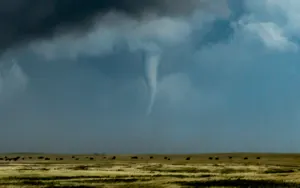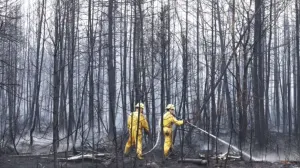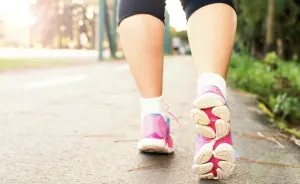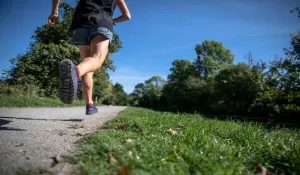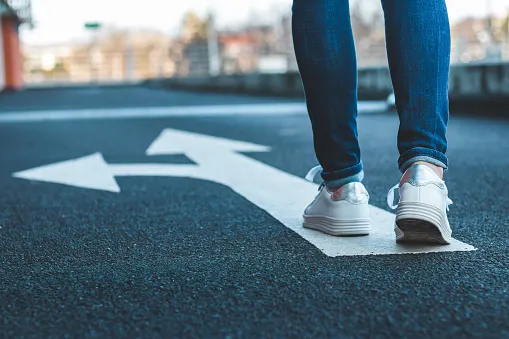
Why we react fast to pandemics but slow to climate change
Psychologists say that humans have evolved to put a greater focus on immediate threats rather than future problems.
Within months of the first official cases of COVID-19, the death toll soared over 20,000 and prompted countries to shut down their borders and put their economies on a pause. The environmental effects of these precautionary measures have been noticed around the world and some of the top polluting nations, such as China, have seen unprecedented declines in greenhouse gas emissions.
Health and disease experts classify COVID-19 as a dangerous virus that requires extensive measures to protect the health of the global population, which has resulted in a swift response that has essentially every nation preparing for the worst-case scenario. So why isn’t climate change seeing a similar reaction?
PSYCHOLOGY AND CLIMATE CHANGE
“Humans are very bad at understanding statistical trends and long-term changes,” says political psychologist Conor Seyle, director of research at One Earth Future Foundation, in an interview with BBC. Humans have evolved to focus on immediate threats, says Seyle, and we have a tendency towards inaction for future problems.
The messages from climate scientists are clear and consistent: burning fossil fuels releases greenhouse gases that warm our atmosphere, so we must lower our emissions to prevent irreversible damages that will affect future generations. But the emissions from driving your car to work every day, or taking a flight to Europe doesn’t immediately threaten our survival or ability to reproduce. This is why our brains filter out long term risks from greenhouse gas emissions to focus on more immediate worries such as forgetting to turn your oven off.
Related: Will COVID-19 kick-start a green renaissance -- or stunt it?
Cognitive biases are systematic errors when thinking that have impacts on how we make judgements and decisions, and psychologists say that there are over 150 of these at play. For example, hyperbolic discounting, which is the perception that the present is more important than the future, impedes our ability to take action on problems that feel distant and slower.
The risk from COVID-19 is easier for us to understand and make sense of because we know that if we contract the virus we will become sick and experience unpleasant symptoms. This sense of immediate fear is reinforced by the consistent footage of sick patients in hospitals and thousands of people rushing to buy toilet paper and other supplies that have sold out at supermarkets.
The bystander effect is another psychological barrier that prevents society from taking action against climate change, since it is assumed that someone else or some other entity will be the solution. This cognitive bias is also apparent during the pandemic, as some people feel they can still visit friends, and others will stay at home. Health experts and government officials say that this flawed approach has contributed to soaring COVID-19 cases and is putting “civil liberties in jeopardy,” as said by Health Minister Patty Hajdu.
Our brains have evolved to help us prioritize what we will do if a family member becomes sick instead of focusing on what the climate will look like 100 years from now. We’ve had these thought processes long before the COVID-19 pandemic, which is partly why we are facing the current climate change dilemma, which scientists warn could be irreparable if we do not take action to mitigate and adapt to the changing climate.
CLIMATE CHANGE CONSEQUENCES?
While climate change is perceived as a distant threat, the fatal consequences are apparent today on every continent on Earth. The World Health Organization (WHO) suggests that 9 out of 10 people breathe air that contains high levels of pollutants and they estimate that air pollution kills seven million people around the world each year, a result of increased mortality from stroke, heart disease, lung cancer, and other respiratory infections.
Researchers are not only interested in the dramatic drop in greenhouse gas emissions, they say that the health effects from the pandemic lockdowns could reduce the number of fatalities that would be associated with greenhouse gases. François Gemenne, director of The Hugo Observatory, says that thousands of lives could be saved since less people are emitting pollutants from vehicles and factories during the lockdown, as reported by Forbes.
WHAT WE’RE LEARNING FROM ACCIDENTAL ENVIRONMENTAL IMPROVEMENTS
As the economy slows we’re seeing the environment fight back. In Italy, without the millions of people flocking to this popular destination, the Venice canals have started running clear for the first time in decades.
While some dismissively say that the clear canal waters show that nature can fix itself easily, these environmental processes that remedy human impacts should emphasize that we have taken nature’s resiliency for granted and that this should be a teachable moment for us to reflect on the impacts we have on our natural environments.
“As for the environmental benefits we see from the slowdown of day-to-day life and economic activity in terms of improving air quality and other slight benefits, it’s a good sign that our ecosystems are somewhat resilient if we don’t completely destroy them,” says Peter Gleick, a climate scientist and founder of the Pacific Institute in Berkeley, California in an interview with CNBC.
“But it would be nice if we could improve our environment without having to cripple our economy,” Gleick added.








